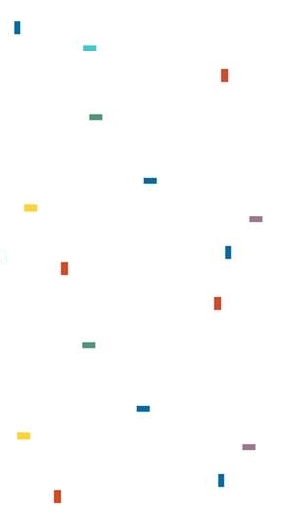CFP: Reimagining Tradition through Pragmatist Inquiry for Better Futures
University of Cagliari, Italy
July 6-8, 2023
39th EGOS Colloquium
Organizing for the Good Life: Between Legacy and Imagination
Sub-theme 66: Reimagining Tradition through Pragmatist Inquiry for Better Futures
Call for Papers
Over its 150-year history, Pragmatist philosophy has been influential in the social sciences and has recently been helpful in addressing questions regarding the dynamic nature of organizing (Farjoun et al., 2015; Kelemen & Rumens, 2013). Pragmatism emerged out of times similar to ours today, when the answers of the past were insufficient to deal with the challenges of the day. Classical pragmatists such as Charles Sanders Peirce, John Dewey, William James, George Herbert Mead, Mary Parker Follett and Jane Addams helped in that direction by rethinking and reshaping logic, metaphysics, psychology, political science, education and social work. For this year’s pragmatist sub-theme, we explore pragmatist perspectives on re-imagining tradition, imagining futures that may be, the democratic struggle for the good life in communities, and the process of organizing.
Tradition, as old ways of doing and thinking, can be viewed in pragmatism as habits that worked in the past. On the one hand, pragmatism calls on us to explore ways of doubting and problematizing legacy (Dewey, 1938a). On the other hand, pragmatism reminds us that old habits can be vital stepping stones in fostering change (Dewey, 1922; 1938b). We are thus interested in papers that explore: the double role of tradition as hindering change and dealing with this through problematization; the role of tradition as fostering change; how habits are re-imagined for new ways of doing; and the role of abduction in the logic of science (Peirce, 1992), and more broadly in social inquiry (Dewey, 1938; Wegener & Lorino, 2021).
Imagination is one of the differentiators of pragmatism to other perspectives, as pragmatism puts imagination and abduction (Peirce, 1998) central in inquiry. Building on the ideas of problematizing traditions and a bricolage of old habits and re-imagined alternatives, we are interested in papers that explore the role of imagination of what may be (Follett, 1924; 1942), around topics such as creativity (Joas, 1996; Mead, 1938), innovation, learning and design. A special interest here is in the role of abduction in imagination and organizational learning.
What do we re-imagine for? Here, we are interested in pragmatist explorations of meliorism and the good life, derived from the active valuing (Dewey, 1939), experiencing (Dewey, 1938b), aesthetics (Dewey, 1934) and the role of emotions (James, 1983) for pragmatism. Pragmatism invites us to put the human experience and the role of aesthetics more central in organizing. Rather than unreflectively relying on old answers, pragmatism highlights the active role of ethics in situated inquiry, the interrelatedness of means and ends as ends-in-view, and the potentially unifying role of purposing in organizations (Follett, 1942). This would redefine organizations as being driven by a deeper purpose, rather than merely by efficiency and profit.
In this sub-theme we want to explore above issues in relation to the themes of legacy, doubting, questioning tradition, imagination of what may be and the active role of valuing for the good life and invite fellow scholars from diverse fields of research to explore conceptual, methodological and empirical studies on a variety of topics such as (but not exclusively):
- Experience, knowledge and learning in organizing: What does it mean for the organizing work that the pragmatist concept of knowledge as experience transcends and includes embodied, emotional and aesthetic issues on organizational knowing and learning (Dewey, 1925/1981; Elkjaer, 2018; Elkjaer, 2021)?
- Abduction, imagination and experimentation: How does abductive thinking first described by Peirce in the logic of science, use imagination to create new ways of considering workplaces as experimental, and to enhance wellbeing at work by re-designing and organizing work and workplaces (Frega et al., 2019)?
- Habits, routines, and inquiry into practice: How could the rich history linking habits (e.g., Simon, 1947; Cohen, 2007) routines (Nelson & Winter, 1982) and routine dynamics (Feldman & Pentland, 2003) be brought to a fruitful dialogue with pragmatist conceptualizations of practice (Simpson, 2009), design (Wegener & Glaser, 2021) and performativity (e.g., Simpson & Lorino, 2016)? How may the concept of trans-action provide ground for thinking transformations/actions/researching for a better future?
- Ethics, valuation and aesthetics: How can the active process of valuing (Dewey, 1939,) in both its ethical and aesthetic dimensions, replace representational approaches to values, and instead highlight qualia (Harkness, 2015) and the semiotic nature of organizational instruments (Peirce, 2020; Panjeta, 2021)?
- Democracy at work, community and purposing: How can situational purposing seen as a process of integrating pluralist desires (Follett, 1924) in the provisional outcomes for which people act, build self-managing, inclusive and democratic communities (Dewey, 1916)?
- Feminism, new materialism and the ecologies of concern in the age of the Anthropocene and beyond: How can pragmatist feminist philosophy (e.g. Seigfried, 1996) help ameliorate respons-ability (Gherardi & Laasch, 2021) for organizations, human lives and conjoint living (Ergene, Calás, & Smircich, 2018)? The question is asked upon the background of the pragmatist tradition of non-dualism between human experience (‘culture’) and nature (Dewey, 1925 [1981]; Dewey, 2012).
For more information, please see the event webpage.
